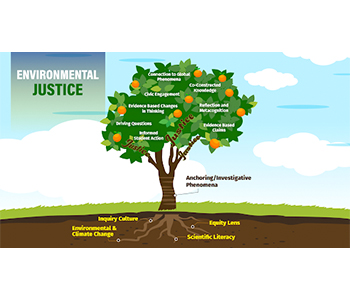Region 4 Update: Winter 2022

Image source: CREEC South
Two cohorts of secondary teachers from across five Southern California counties have participated in professional learning centered on connecting science and environmental literacy titled Launching Environmental Literacy Lessons. During the four day workshop, teachers explore the connections between the CA NGSS and the CA Environmental Principles and Concepts, they get to be learners investigating a local environmental phenomena, and they are supported step-by-step to design a lesson that starts with science phenomena and culminates in environmental justice activities. The CA Environmental Literacy Program has supported the collaboration of coordinators from Orange County, Imperial County, and San Diego County along with directors from the UCI Science Project to plan and implement the 4 day workshop followed by a period of time for teachers to implement a lesson series in their classrooms. The end result of this experience has been environmental actions such as students writing letters to the principal to request rain barrels to collect precipitation from the school roof or students making infographics to share the disparities of available green space in their cities. To participate in future professional learning experiences like this, check www.creec.org or the SDCOE Environmental Literacy site.
Southern California Association of Science Specialists!
SCASS is another opportunity to network with your fellow science leaders in Southern California. This year’s focus is Changing Mindsets Towards Equitable Practices. See the SCASS site for meeting dates and registration links.
Southern California CA Science Projects have online and in person Professional Learning Opportunities!
See each project for up to date offerings:
Connect to your local Southern California County Office of Education!
- Imperial County
- Inyo County
- Mono County
- Orange County
- Riverside County
- San Bernardino County
- San Diego County






